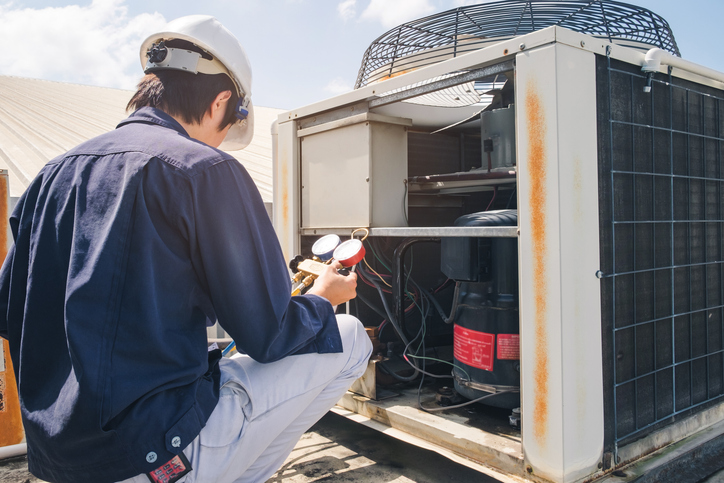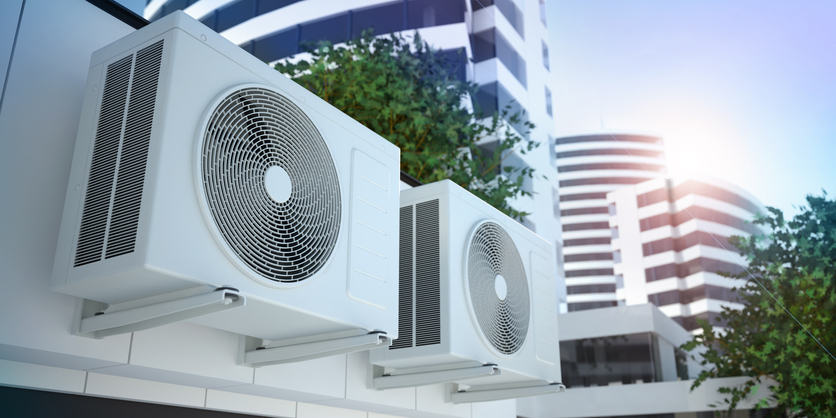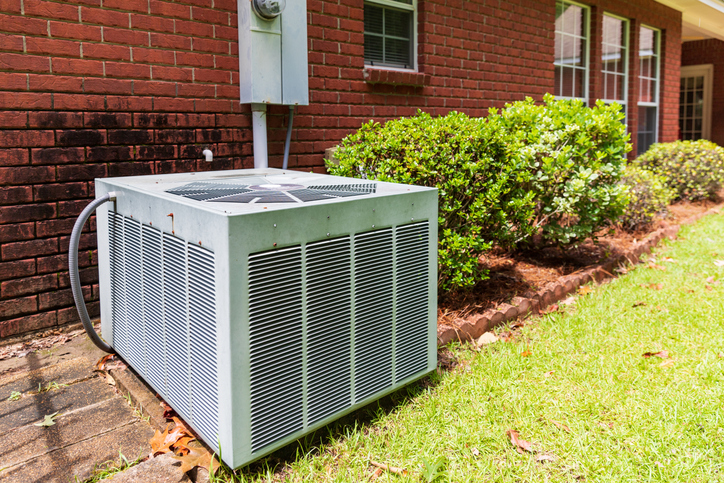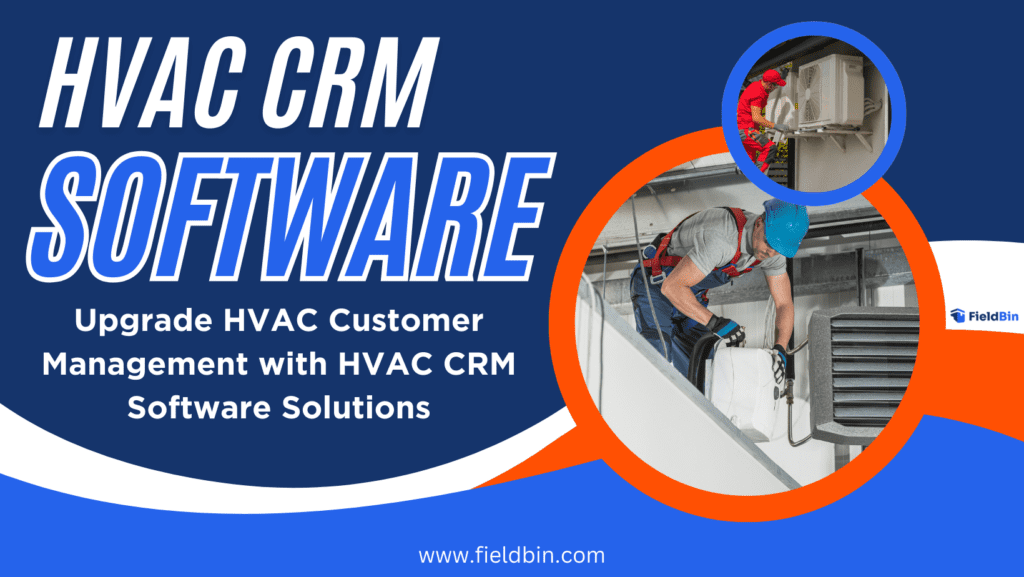In the HVAC industry, managing customer relationships with HVAC CRM Software is important to running a successful business. I’ve seen how challenging it can be to stay on top of customer needs and deliver great service, especially as your business grows. When I first started working with HVAC companies, many of them were using manual methods or basic software that couldn’t keep up with their expanding client base. The outcome? Missed appointments, delays, and frustrated customers.
As the market gets more competitive, it’s more important than ever to stand out. You want to provide the kind of service that keeps customers coming back. For those of us focused on growth, tools like HVAC CRM software can make a huge difference. I’ve seen businesses transform by implementing these tools. What used to take hours now takes minutes, and customers definitely notice the improvement.
This technology changes how we manage customer relationships. It streamlines operations and helps our businesses grow. When I can quickly pull up a customer’s history, easily schedule appointments, and follow up without a hitch, it frees me up to focus on what really matters: delivering great service and expanding the business.
If you’re interested in learning more, check out this guide to CRM best practices or explore how automation in the HVAC industry can make your operations even smoother.

The Current Challenges in HVAC Customer Management
Before we dive into how HVAC CRM software can really make a difference in your business, let’s talk about some common issues I’ve seen HVAC companies run into when managing their customers. These problems often come from using outdated methods, relying on manual tasks, and not having systems that work well together. These challenges can slow down growth and make it harder to deliver the level of service you want to provide.
Manual Processes
In many HVAC businesses, handling customer interactions still involves a lot of manual work. I remember working with a small HVAC company where everything was done by hand—scheduling through phone calls and tracking follow-ups on paper. It worked when they were just starting out, but as they grew, these manual processes led to double bookings and missed appointments, which frustrated both the team and their customers. It became clear that these old methods weren’t going to cut it as they scaled.
If you’re curious about the downsides of manual processes and how automation can help, check out this article on the impact of automation in service businesses.
Miscommunication
Miscommunication is another issue I’ve noticed in managing HVAC customers. I remember one time a technician showed up to a job with the wrong information because the customer’s notes weren’t recorded properly. The customer was understandably upset, and the technician felt unprepared. These kinds of mix-ups can really damage trust. Without a good system to keep track of what’s been said and done, these problems are almost guaranteed.
For more on how miscommunication can impact customer relationships, this guide on effective communication in service businesses offers some useful tips.
Scheduling Conflicts
Scheduling is super important in the HVAC industry, where fast service can set you apart from the competition. I’ve seen companies struggle with managing schedules, especially when they rely on basic tools. In one case, technicians were sent all over town, wasting time and gas, simply because the scheduling wasn’t well-organized. They also ended up overbooking, which led to delays and unhappy customers. This not only hurt their reputation but also limited their ability to take on more work and grow.
Customer Retention Challenges
Keeping customers for the long haul is important to staying successful, but I’ve seen many HVAC businesses struggle with this. I once worked with a company that was great at bringing in new customers but had a tough time keeping them. They didn’t follow up consistently after jobs were done, and they didn’t have a good system for tracking customer preferences or service history. Because of this, they missed out on opportunities for repeat business. When they finally started using a CRM system, they were able to keep better track of their customers and stay in touch. The difference was obvious—they started getting more repeat business and building stronger relationships.
For more insights on improving customer retention, check out this comprehensive guide to customer retention strategies.
By addressing these issues with the right tools, like HVAC CRM software, you can make your work easier, improve communication, and keep your customers happy. I’ve seen firsthand how these changes can help a business grow and succeed over the long term. It’s all about being prepared to handle the challenges that come with growth.

What is HVAC CRM Software?
HVAC CRM software is built specifically for businesses like ours. It helps us manage customer relationships, handle daily tasks, and deliver better service. But what makes HVAC CRM software different from other CRM systems? And why is it so useful for us?
HVAC CRM software is a tool that lets us manage everything—from customer interactions to scheduling, dispatching, and overall business tasks—all in one place. Unlike general CRM systems designed for various industries, HVAC CRM software is built to address the specific challenges we face in the HVAC industry. That’s why it fits our business so well.
Key Features of HVAC CRM Software
Customer Information Management:
HVAC CRM software keeps all our customer information—contact details, service history, equipment records, and communication logs—in one place. This makes it easier for our team to access the information they need to provide better customer service. I’ve seen how much smoother things go when our techs show up to a job already knowing what’s been done before and what equipment is on-site. It reduces guesswork and helps build trust with our customers.
To dig deeper into why managing customer information is so important, take a look at this article on the importance of a good CRM.
Scheduling and Job Assignment:
The software makes scheduling much easier. We can assign jobs to techs based on their availability, location, and skills. Plus, with real-time updates, our techs get job details and directions right on their phones, so everyone stays in sync. Before we switched to HVAC CRM software, we dealt with our fair share of scheduling mix-ups. But now, we’ve cut down on travel time and can handle more jobs each day. That’s been a game-changer for our bottom line.
If you’re interested in learning more about effective scheduling, this guide on HVAC scheduling strategies might help.
Communication Tools:
HVAC CRM software also helps us stay in touch with our customers. It automates things like appointment reminders, follow-ups, and notifications. Whether we’re sending out appointment confirmations, maintenance reminders, or special offers, the software keeps our communication consistent, usually through email or text. I remember one customer telling me how much they appreciated the maintenance reminders. It made them feel cared for and kept them coming back.
For tips on improving customer communication, check out this article on effective customer communication.
Reporting and Insights:
The software also provides reports and insights into customer behavior, service performance, and overall business metrics. By analyzing this data, we can make smarter decisions, spot trends, and tweak our operations to meet our business goals. For example, a business owner I know used these insights to figure out which services were in high demand. Then, they adjusted their marketing efforts, which led to more bookings.
To see how data and insights can drive better business decisions, check out this article on the power of data in business.
By using HVAC CRM software, we can streamline our operations and keep customers coming back. I’ve seen how these tools can make a real difference in how businesses like ours operate and grow. It’s all about making things easier and doing our jobs better.

How HVAC CRM Software Revolutionizes Customer Management
Now that we have covered the basics of HVAC CRM software, let’s dive into how it can change the way you manage your customer relationships. By addressing the challenges we talked about earlier, HVAC CRM software can help your business run more smoothly, improve customer service, and grow more effectively. I’ve seen the difference it can make firsthand.
Streamlining Operations
One of the key benefits of HVAC CRM software is how it simplifies operations by automating routine tasks and keeping everything organized. This boosts efficiency, reduces mistakes, and frees up your team to focus on what really matters: providing great service.
Automation
HVAC CRM software automates tasks like scheduling, invoicing, and follow-ups, taking a load off your administrative staff. For example, when a customer books a service, the software assigns the job to the nearest available technician, creates an invoice, and sets up a follow-up reminder. This not only saves time but also ensures nothing gets overlooked. I remember working with a small HVAC company that was overwhelmed with manual scheduling. After switching to HVAC CRM software, they saw a noticeable drop in scheduling errors and were able to handle more jobs in less time. It made a real difference in their daily operations.
For more on how automation can improve your operations, you might find this article helpful.
Integration
Another benefit is how well HVAC CRM software works with other tools you use, like accounting software, inventory management, and marketing platforms. This creates a smooth workflow, where data moves easily between systems, cutting down on manual data entry and reducing mistakes. For instance, when a job is completed, the software updates your inventory, creates an invoice, and sends it to your accounting system for processing. I’ve seen this in action, and the integration between systems saved time and reduced the back-and-forth between departments, allowing everyone to stay focused on their tasks.
To learn more about the benefits of software integration, check out this resource.
Enhancing Customer Experience
These days, providing a great customer experience is more important than ever. HVAC CRM software helps you offer personalized service, faster responses, and consistent communication.
Personalization
HVAC CRM software lets you give each customer a personalized experience. With a complete customer database, you can track preferences, service history, and equipment details, which allows your team to tailor their interactions. For example, when a customer calls to schedule maintenance, your staff can quickly access their history to suggest the right service or remind them of upcoming needs. This type of personalization builds stronger relationships and keeps customers satisfied. I once worked with a team that used CRM software to send personalized reminders to customers about their specific equipment needs. Customers appreciated that the company remembered their details, and it made them more likely to stick with the service.
For more insights on personalizing customer service, you might find this article useful.
Faster Response Times
In the HVAC business, responding quickly is crucial. HVAC CRM software makes scheduling and dispatching easier, helping you respond to customer requests faster. With real-time updates and mobile access, technicians get job details on the go, reducing delays and ensuring prompt service. Faster response times not only improve customer satisfaction but also give you an edge over competitors. I’ve seen how this can set a company apart. Customers notice when they receive quick, reliable service, and it often leads to repeat business and referrals.
Improving Data Management and Insights
Data is a valuable tool for any business, and HVAC CRM software helps you make the most of it. By centralizing customer data and offering clear reports, the software provides the insights you need to optimize your operations and improve customer management.
Centralized Data
HVAC CRM software puts all your customer data in one place, making it easy to access and manage. This eliminates the need for multiple spreadsheets or disconnected systems, reducing the risk of information gaps and ensuring that your team has what they need to serve customers effectively. Whether you’re tracking customer preferences, service history, or communication logs, HVAC CRM software gives you a reliable source for all your customer information. I’ve worked with businesses where having everything centralized saved hours. No more digging through files or trying to piece together customer histories from different sources.
To learn more about the importance of centralizing data, take a look at this article.
Reports and Insights
One of the most useful features of HVAC CRM software is its ability to generate clear reports. The software creates detailed reports on customer behavior, service performance, and revenue trends. These insights help you identify areas that need improvement, see how well your marketing efforts are working, and make decisions based on real data. For example, looking at customer feedback can show you common issues, so you can adjust your services to better meet customer needs. Using these reports, you can continuously improve your customer management and help your business grow. I remember working with a business owner who used these reports to shift their focus to the services that were bringing in the most revenue. It led to a boost in profitability.
To explore more about how data can drive business decisions, check out this article.
Scalability
As your HVAC business grows, having systems that can grow with you is crucial. HVAC CRM software supports your expansion by providing the tools you need to manage more customers, appointments, and technicians without losing quality or efficiency.
Growth Management
One thing I’ve seen in businesses that start to expand quickly is the struggle to keep up with the increasing workload. Without the right systems in place, it’s easy for things to slip through the cracks—missed appointments, delayed follow-ups, or overwhelmed staff. HVAC CRM software helps manage this growth by automating and streamlining key processes. For example, one HVAC company I worked with saw a big increase in their customer base within a year. Initially, they tried to manage the growth manually, but it quickly became clear that they needed a better system. After implementing HVAC CRM software, they handled the increased volume of appointments, follow-ups, and service requests without needing to hire additional administrative staff. This scalability allowed them to maintain their service quality, even as their business grew.
For more information on managing business growth effectively, this resource may be helpful.
Adaptability
Another important aspect of scalability is the ability to adapt to changing business needs. HVAC CRM software is customizable, allowing you to tailor the system to your specific workflows and requirements. I remember working with a company that started offering new services and realized their current setup couldn’t handle the changes. By using HVAC CRM software, they adjusted the system to include these new services, update pricing models, and streamline operational changes without missing a beat. This adaptability ensures that your CRM system stays aligned with your business goals, no matter how your business evolves.
To learn more about adapting your business to changing needs, you might find this article insightful.
These experiences have shown me how important it is to have a system that not only supports growth but also evolves with your business. With HVAC CRM software, you can make sure your business continues to provide excellent service, even as it expands and adapts to new challenges.

Real-World Examples and Case Studies
To show how HVAC CRM software can make a difference, I want to share some examples of HVAC businesses that have used these solutions. I’ve seen firsthand how these tools can transform a business, and these stories reflect what I’ve experienced in the field.
Improving Efficiency and Customer Satisfaction
A mid-sized HVAC company in the Midwest was struggling with scheduling and customer communication. Their manual methods were causing double bookings, missed appointments, and unhappy customers. This situation reminded me of a client I worked with who faced similar issues. They were constantly juggling schedules, and mistakes were common.
After they started using HVAC CRM software, things quickly got better, just like with my client. The automated scheduling system put an end to double bookings and cut down on the time technicians spent traveling. The software’s communication tools ensured that customers received reminders and follow-ups when they needed them. I remember the office manager’s relief when the double bookings finally stopped. They were able to keep up with demand without feeling overwhelmed. With these changes, customer satisfaction increased, and the company took on more work without needing to hire additional staff.
For more on how to improve efficiency and customer satisfaction, you might want to check out this article on HVAC automation.
Helping a Family-Owned HVAC Business Grow
A family-owned HVAC business in the Southeast had been running smoothly for over 20 years but found it hard to grow. Their old ways of managing customers made it difficult to handle a growing customer base. I’ve seen this before with another family-owned business I worked with—keeping track of everything manually was really holding them back.
When they started using HVAC CRM software, the business saw improvements almost immediately, just like what I observed with my client. The software helped them streamline their operations and keep more customers. The reports and data provided by the software gave them insights into customer habits, which allowed them to tweak their services and marketing efforts. I remember talking with the business owner about how eye-opening it was to see patterns in customer behavior they hadn’t noticed before. These changes helped the business expand into new areas and increase revenue by 30 percent in just one year.
To learn more about how HVAC CRM software can help businesses grow, take a look at this guide.
Lessons Learned
These examples offer some key takeaways for HVAC businesses thinking about using HVAC CRM software:
- Automation and Integration: Automating daily tasks and connecting systems can really boost efficiency and cut down on mistakes. I’ve seen businesses change completely when they no longer have to rely on manual processes. If you’re curious about the benefits of automation and integration, this article is worth a read.
- Customer Experience: Offering personalized service and keeping communication consistent is crucial for keeping customers happy and loyal. In my experience, customers notice when they’re treated like individuals, not just another number. For tips on improving customer experience, check out this article.
- Data-Driven Decisions: Using data helps businesses make better decisions and run more smoothly. I’ve seen business owners realize just how valuable data can be in guiding their choices and improving operations. If you want to dive deeper into making data-driven decisions, this article is a great resource.
- Supporting Growth: HVAC CRM software supports growth by giving businesses the tools they need to handle more customers and service requests efficiently. I’ve seen how this software can be a turning point for businesses ready to grow. To learn more about managing business growth effectively, take a look at this resource.
These stories show how HVAC CRM software can help businesses improve efficiency, boost customer satisfaction, and grow steadily. From what I’ve seen, these tools aren’t just nice to have—they’re essential for any HVAC business looking to succeed in today’s market.

Choosing the Right HVAC CRM Software for Your Business
Choosing the right HVAC CRM software is a decision that can significantly impact your business. I’ve worked with various HVAC companies and have seen how the right software can make a noticeable difference. Here’s what I’ve learned to consider as you explore your options.
Key Considerations
Understand Your Business Needs
Start by thinking about the size of your business and what you really need. How many customers do you serve? What is the size of your technician team? How complex are the services you offer? If you’re running a larger operation with multiple locations, you might need software with more features that can grow with you. On the other hand, if your business is smaller, you might want something that’s easy to use and affordable.
I worked with a small HVAC company that managed everything with basic tools and spreadsheets. As they grew, they realized they needed something more capable. They didn’t need all the extras of a large system, but they did need something that could handle their growing customer base without overwhelming their team.
Look for Ease of Use
Getting your team to use new software can be tough. You want something simple, something that makes sense right away. Look for HVAC CRM software that’s easy to understand and use, both for your office staff and technicians. A system that’s straightforward will help your team get the most out of it without much training.
In my experience, when software is too complicated, people don’t use it. I’ve seen businesses invest in complex CRM systems, only to have the team struggle because they were hard to navigate. On the flip side, I’ve seen how quickly a team can embrace new technology when it’s user-friendly. One client told me how much time they saved once everyone got on board with a more intuitive system. They quickly wondered how they managed without it. For more on why ease of use is crucial, you might find this article helpful.
Make Sure It Can Be Customized
Every HVAC business is a little different. That’s why it’s important to choose software that can be adjusted to fit your specific needs. Look for HVAC CRM software that lets you tweak workflows, reports, and how it connects with other tools. This way, you can set it up to work the way you do.
I worked with a family-owned HVAC business that needed its CRM to handle some specific processes. They didn’t want to change how they did things—they wanted the software to adapt to them. After some research, they found a system that let them customize workflows and reports. It made a big difference. The owner was happy they didn’t have to change their way of doing business to get the benefits of modern software. To understand more about the importance of customization, this guide on CRM systems is a great resource.
Check How Well It Works with Other Tools
Your HVAC CRM software should work smoothly with the tools you’re already using. Make sure it can connect with your accounting software, inventory management tools, and marketing platforms. When everything works together, your data will move easily from one part of your business to another, reducing manual work and mistakes.
I’ve seen businesses struggle with software that doesn’t integrate well with their existing tools. One client had to enter the same data into multiple systems because their CRM didn’t sync with their accounting software. It was a waste of time and led to errors. After switching to a CRM that integrated well, they streamlined their processes and cut down on mistakes. The difference was clear. For more on why integration matters, you might want to check out this article.
Consider the Support and Training Available
Switching to new software can be tricky, so it’s important to pick a provider that offers good support and training. Look for a company that helps you get started, provides training resources, and is there when you run into issues. This way, your team can get up to speed quickly and has someone to turn to when they need help.
I’ve worked with companies that had great experiences because their CRM provider offered strong support. On the other hand, I’ve also seen how frustrating it can be when support is lacking. One client struggled with a new system because the vendor wasn’t helpful. Eventually, they switched to another provider who offered better support, and the difference was night and day. The new system became a valuable tool instead of a constant problem. To learn more about why good support is essential, check out this resource.
Top Recommendations
Here are a few HVAC CRM software options to consider:
- ServiceTitan: This software offers a range of features and integrates well with other tools, making it a solid choice for larger HVAC businesses that are looking to grow.
- Jobber: Jobber provides straightforward design and scheduling tools, making it a good fit for small to mid-sized HVAC companies. I’ve seen smaller companies thrive with Jobber because it offers the right balance of features without overwhelming the user.
- Housecall Pro: Housecall Pro is designed with mobile users in mind and is great for managing field services, making it ideal for businesses with a large team of technicians. One of my clients, who has a large team in the field, said switching to Housecall Pro was one of the best decisions they made because it made managing their technicians so much easier.
- Fieldbin: Fieldbin is a straightforward and affordable CRM solution designed for small to mid-sized HVAC businesses. It stands out for its customization options, smooth integrations with other tools, and solid customer support. I’ve recommended Fieldbin to businesses looking for something that’s both capable and easy to use.
Each of these options has its strengths. The best choice depends on what your business needs most. Whether you’re looking for advanced features, ease of use, or reliable support, one of these HVAC CRM solutions should fit the bill.
Frequently Asked Questions (FAQs)
How does HVAC CRM software differ from general CRM systems?
HVAC CRM software is specifically designed for the HVAC industry, offering features tailored to the unique workflows and challenges of HVAC businesses, such as scheduling, dispatching, and equipment tracking.
What is the typical ROI for implementing HVAC CRM software?
The ROI for HVAC CRM software can vary depending on the size of your business and how well you utilize the software. However, many businesses see a significant return through increased efficiency, improved customer satisfaction, and higher revenue.
How long does it take to implement HVAC CRM software?
The implementation timeline can vary depending on the complexity of the software and the size of your business. On average, it can take anywhere from a few weeks to a few months to fully implement HVAC CRM software and train your team.
Can HVAC CRM software be used by small businesses?
Yes, HVAC CRM software is scalable and can be used by businesses of all sizes. Many software options are designed specifically for small to mid-sized HVAC companies, offering the right balance of features, affordability, and ease of use.
What are the security features of HVAC CRM software?
Most HVAC CRM software providers offer robust security features, including data encryption, secure user authentication, and regular backups to protect your customer information and business data.
How can HVAC CRM software help in customer retention?
HVAC CRM software helps improve customer retention by enabling personalized communication, timely follow-ups, and consistent service. By tracking customer preferences and service history, you can deliver a tailored experience that meets your customers’ needs and keeps them coming back.
Conclusion
HVAC CRM software can really change the way we manage our customers. I have seen this firsthand with several businesses I have worked with. It helps us run our operations more smoothly, keeps track of important information, and supports growth, even when the market is tough.
If you are focused on growing your HVAC business, now might be a good time to see what HVAC CRM software can do for you. I worked with a small HVAC company that was struggling to keep up with customer requests and appointments. They were handling everything manually, which left their team feeling overwhelmed. After they implemented a CRM system, they noticed a real difference—not just in how they managed tasks, but also in how they connected with their customers. It made a noticeable impact on their day-to-day work.
Whether we want to work more efficiently, keep our customers happy, or expand our business, the right CRM can help us reach those goals.
If you are ready to improve how you manage customer relationships, consider reaching out to a software provider for a demo or some advice. Take the time to explore your options and find the HVAC CRM software that fits your business best. I have seen how the right choice can lead to growth and smoother operations. The decisions we make today will shape our business’s future. Let us use CRM technology to set ourselves up for success.

